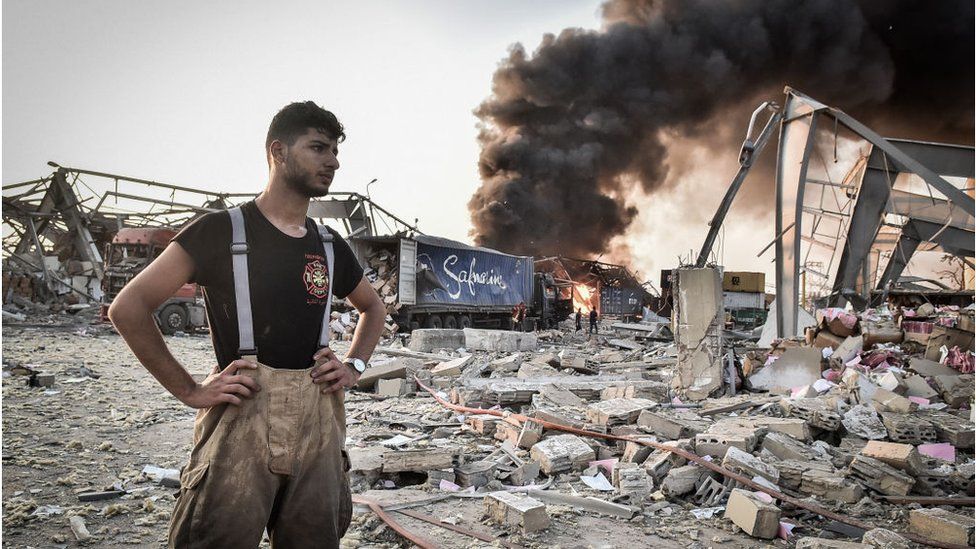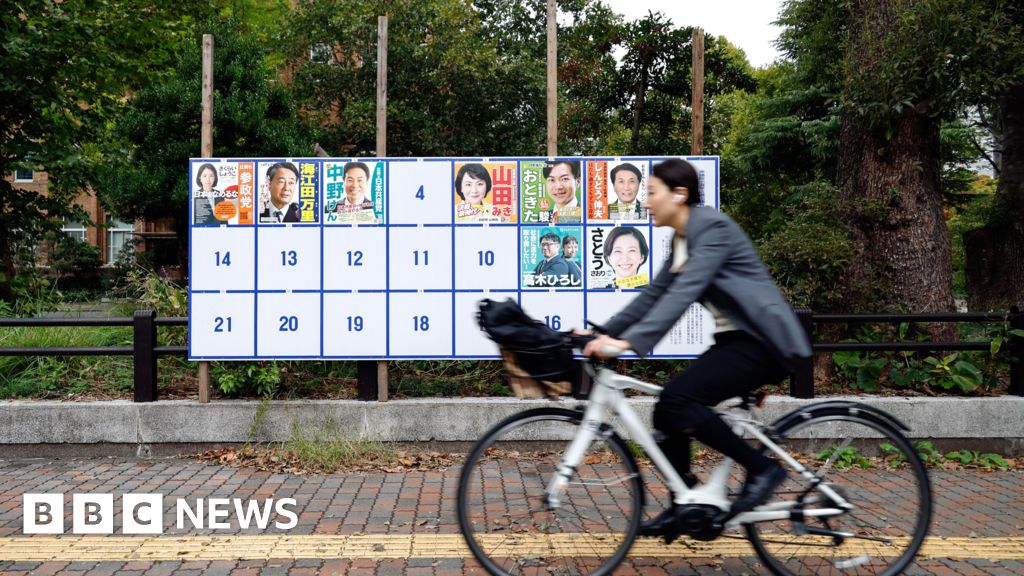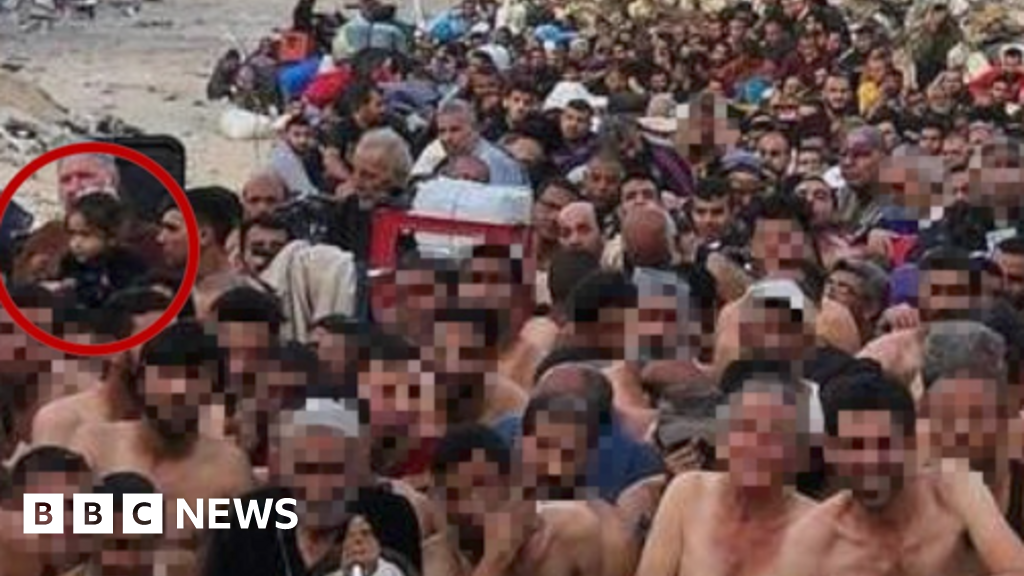ARTICLE AD BOX
 Image source, Getty Images
Image source, Getty Images
The blast killed more than 200 people and injured more than 6,000
By Kim Chakanetsa
BBC World Service
On the day Beirut stood still, the city was covered in glass. Joelle Azar remembers being surrounded by it.
"The glass was flying everywhere," she says.
Shards of it ripped from car, shop and apartment building windows and scattered across the city as the port blast tore through it.
Joelle was in her car some metres away from Le Panier du Coin, the natural food store she founded with her sisters, when the explosion occurred.
"I didn't hear anything other than my car moving forward," she recalls. "I started screaming."
When she looked up, the roof of her car was smashed.
"I had a balcony that fell on my car but not on my head. It is by miracle that I was not injured."
Her immediate concerns were not about her own injuries. "My only thought was to see if my sister was still alive. So, I was only screaming the name of my sister."
Joelle lost five friends in the blast
Joelle's sister had been working at their store which was further down the road.
Upon hearing her screaming, one of her neighbours rushed out and hugged her, assuring her that her sister was OK.
"When I saw my sister, it was the best moment of my life," she says.
Her thoughts turned to her parents and other family members who lived a few minutes away. She remembers running home. Thankfully, her family were OK. But other people she knew were not as fortunate. She lost five friends in the blast, which killed at least 218 people and injured more than 6,000 others.
It took some time for Joelle to fully understand what had happened.
"I did not think that it was bigger than this street", she says of the explosion. "It took me 10 to 15 minutes to realise that the blast was not just in this road, it was in all Beirut."
Joelle would later learn of how thousands of tonnes of ammonium nitrate, a compound used in explosives, had been neglectfully stored for years and had exploded alongside tonnes of fireworks and containers of kerosene and acid to create what has been described as "the perfect bomb".
Life before the blast had not been simple.
In 2018, Joelle had a steady job in the banking sector, but she was finding it increasingly stressful. She had always had a dream to start a food store with her sisters inspired by their mother, who always prized natural food and produce growing up.
The business was completely self-funded. The four sisters pitched in to get the project off the ground.
But in 2019, Lebanon was hit by a financial crisis. Joelle, who at the time was still holding down her bank job, saw her earnings shrivel as the Lebanese pound became increasingly unstable.
"When the financial crisis hit, the devaluation of our Lebanese pound was huge," she says.
Salaries were wiped out overnight, losing approximately 90% of their value.
And then in 2020 came the pandemic.
Again, Joelle was forced to adapt, delivering goods to customers. "I had two hours every day to get all the deliveries done," she says.
The blast, which occurred on 4 August 2020, was the final blow. It left Joelle's shop in ruins. The glass windows were shattered, and she found a door handle in the street, several metres away.
"I came back to work the second day, all the products were on the floor."
Joelle's shop was damaged by the explosion
But amid the debris were glimmers of hope and humanity.
"People came to help me clean - people that I did not even know," she recalls. "They were just passing seeing one woman cleaning all alone and they started helping me. There was a lot of love. We weren't just broken souls."
But despite the solidarity, it was a difficult time. "I closed for a month. Psychologically it was too much. Whenever I used to come near the shop, I would feel anxious".
In the days and weeks that followed Joelle described herself as being in "survival mode". Her house had also been destroyed. She was however able to obtain a small amount from the government to help repair her house. Help for the store came from non-governmental organisations, including Stand for Women, an initiative supporting women-led small and medium enterprises in the area.
Three years on, the investigation into what happened at the port has stalled, and the survivors are left with many unanswered questions.
"What we lived was not OK," she says. "The trauma and the PTSD (post-traumatic stress disorder) we have are not ok.
"I just feel angry and disgusted by the fact that we might never know the truth."
Things have changed. Joelle now runs the store alone - her sisters, like many other Lebanese, have since left the country. I ask Joelle if she has also thought of leaving but she is determined to stay.
"I believe in this country, I believe in its people," she says. "I think we can have a great future we just need to be more intelligent and more patient. I hope that younger generation can change things."

 1 year ago
55
1 year ago
55








 English (US)
English (US)